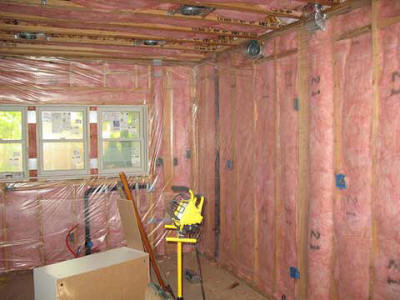Cabinet has approved the details of the new insulation and smoke alarm requirements which are contained in the Residential Tenancies Amendment Bill.
The Bill requires that insulation and smoke alarms are installed in all residential rental properties.
While insulation will have to be installed in social housing from July 1 this year, landlords will have until July 1, 2019 to install it in other rental properties.
There are some exemptions where it is not practical to install insulation.
Smoke alarms will have to be installed in rental properties by July 1 this year.
Building and Housing Minister Nick Smith said he was releasing the details of the new requirements to give landlords, tenants, and providers, as much notice as possible to prepare.
He said the most contentious issue has been whether properties that had insulation, but not up to today’s standard, would have to be upgraded.
“These regulations are not going to require an upgrade because the costs exceed the benefits and, inevitably, the costs are passed on to the tenant.
“The benefits of insulation hugely exceed the costs where there is no insulation present but the benefits are marginal for upgrading insulation to the latest standard.
“We are requiring that for older homes with insulation, it needs to be in reasonable condition."
However, Smith said that where insulation work is done where there is no insulation, or the insulation is no longer in reasonable condition, that work will have to meet the higher 2008 Building Code standard.
He added that, under the new requirements, retrofitting of conductive foil insulation will not be allowed as it has resulted in deaths in New Zealand and Australia.
“We are also going to require tenancy agreements to disclose the level of insulation in the ceiling, underfloor and in the walls as an incentive for landlords to improve insulation over time.”
NZ Property Investors' Federation executive officer Andrew King said the finalised regulations will improve tenants’ wellbeing and safety without large increases in rental prices.
The NZPIF has always supported insulation in rental properties but is pleased that government has rejected calls for existing insulation to be upgraded to current standards, he said.
"The increased efficiency between the 1978 and present standards is very minimal, but the cost is almost the same as completely installing new insulation.
“I can't see tenants appreciating large rent increases for what is likely to be an unnoticeable difference in insulation quality".
However, King was surprised that the some of the penalties for landlords in the requirements have been increased.
The penalty for not complying with the new insulation and smoke alarm rules has been increased from $3,000 to $4,000, while the penalty for issuing a retaliatory notice to tenants has been increased to $4,000, rather than $2,000.
He said the size of these penalties reinforces that anyone managing a rental property needs to know what they are doing to avoid making expensive mistakes.
"If landlords are to face such strong penalties for retaliatory action, perhaps it would have been fair to apply penalties to tenants who retaliate against landlords by intentionally damaging their rental property or not paying rent".
*Further information about what the new regulations mean for landlords, tenants and building industry professionals is available here.



 Search
Search
